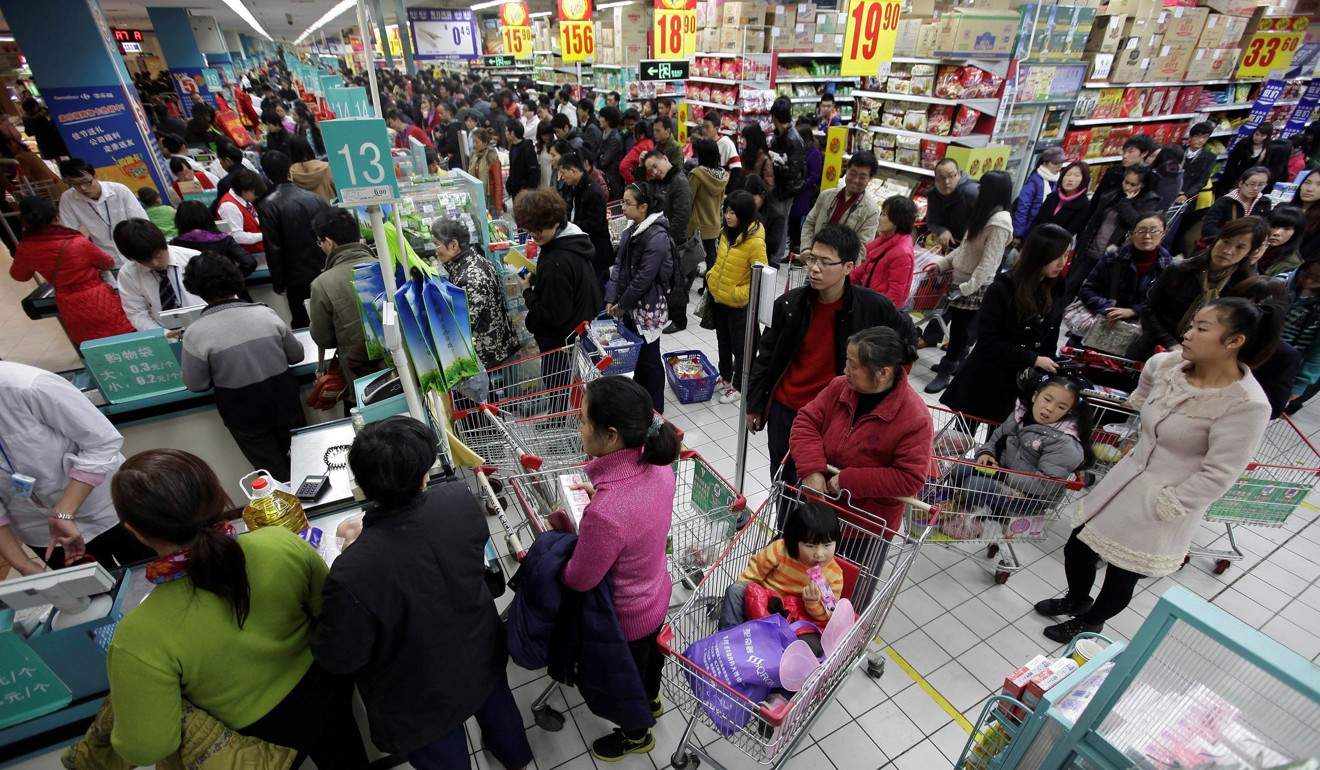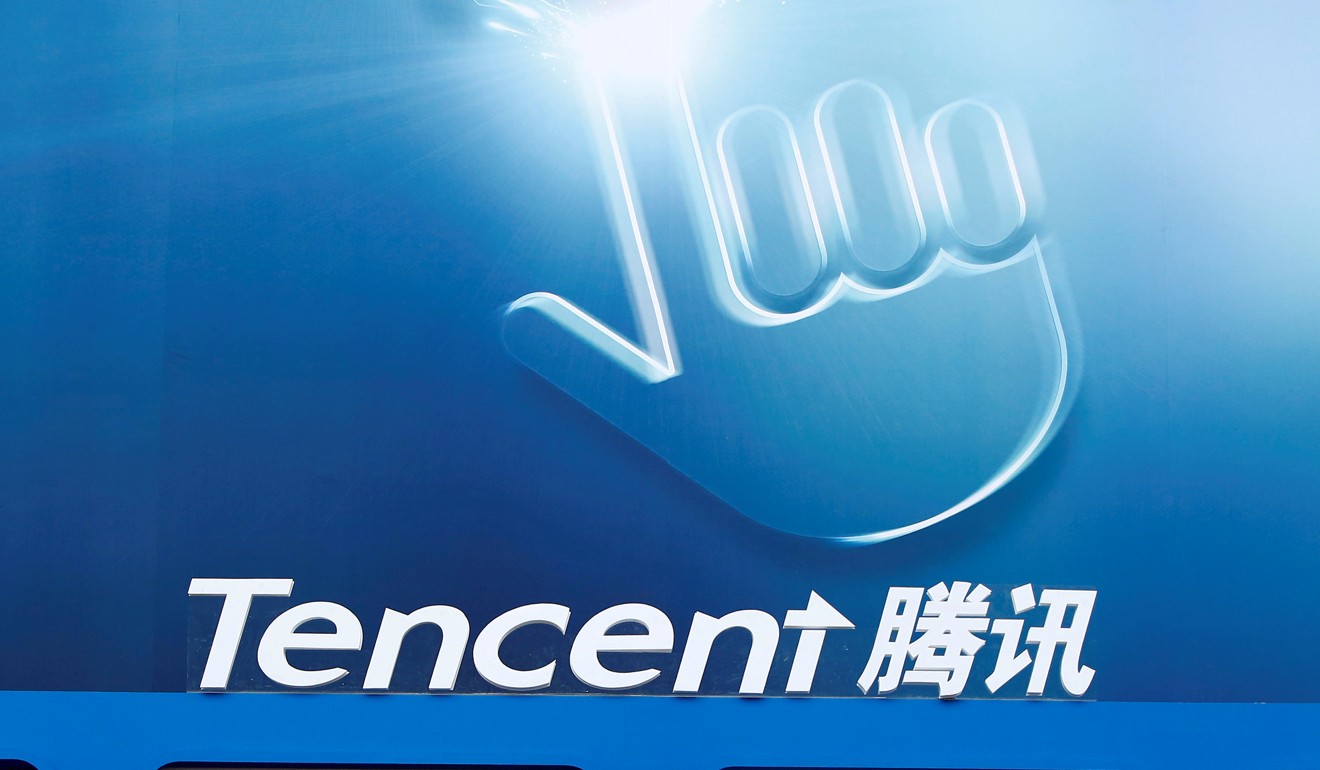
Wanda and Tencent team up on ‘smart retail’ venture
The partnership will aim to transform Wanda’s huge bricks-and-mortar presence into ‘smart’ shopping centres, and drive online traffic through Tencent’s platforms including WeChat
Tencent Holdings, China’s social media and games giant, has launched an internet technology joint venture with Wanda Commercial Management Group, the country’s largest owner and operator of shopping centres, upping its ante in becoming a “smart” retailer, very much in line with Alibaba Group Holding’s push to integrate its online and bricks-and-mortar resources.
Tencent said on Wednesday it has taken a 42.5 per cent stake in the new yet-unnamed venture, without giving a price.
Wanda Commercial has 51 per cent, while Gaopeng, which runs an electronic invoice business and is now backed by Tencent, will hold the remaining 6.5 per cent. Gaopeng was US daily deals company Groupon Inc’s former affiliate in China.
Qi Jie, Wanda Commercial’s president, will serve as chairman of the new operation, while Gao Xia, Gaopeng’s CEO, will take on that role, under Tencent’s recommendation.

“For Wanda Plazas, the cooperation will bring in enormous online traffic through WeChat and other platforms, enabling them to undergo smart upgrades, build a robust membership system, and increase the company’s overall value,” Wanda said in a statement.
“The cooperation will offer Tencent access to huge volumes of offline traffic and varied consumption scenarios, directing its online traffic and technology into its offline resources and accelerating the implementation of Tencent’s smart retail strategy.”
The move is Tencent’s latest in a flurry of investments in Chinese shopping and retail assets, in what’s being viewed by commentators as an effort to catch up with Alibaba’s strategy, which has also leveraged its dominance in China’s e-commerce sector to invest in a number of traditional retail outlets and chains, in what’s being dubbed the company’s “new retail” strategy.
“Wanda’s huge footfall is attractive for Tencent. It is a latest experiment in China’s smart retail strategy,” said Lu Zhenwang, chief executive of the Shanghai-based Wanqing Consultancy.

“Now most of them are not making money, but this offers a lot of future earning capability.”
Tencent said it would buy a 5 per cent stake in one of China’s largest supermarket chains, Yonghui Superstores last December. The two also said they planned to invest in Carrefour’s China unit.
Then in April it signed a cooperation agreement with China Resources Group, one of the country’s largest shopping centre operators, to integrate the latest technology into its traditional grocery and department stores.
Alibaba has also been promoting offline shopping, taking stakes in Sun Art Retail Group and Auchan Retail, following earlier investments in Intime Retail Group, Lianhua and Sanjiang.
This renewed enthusiasm for traditional shopping centres and complexes has turned Wanda Commercial, once clouded by its massive asset sale and the failure of its in-house online-offline integration venture, into something of a darling of the internet sector.

In January, Tencent Holdings, JD.com, Sunac China Holdings and Suning Commerce Group spent a combined US$5.4 billion for a total 14 per cent stake in Wanda Commercial. Tencent spent US$1.6 billion to acquire a 4.12 per cent stake.
Wanda Commercial had 235 Wanda Plazas operating at the end of last year, with annual customer footfall of 3.19 billion, it has said. In addition it owns cultural tourism cities, hotels, cinemas and children’s entertainment venues.
It launched its own online-offline integration app “Ffan” in 2014, which allowed customers to book dinner reservations, check for parking spaces and download discount coupons.
But after four years of product shifts and management reshuffles, it has struggled to get off the ground and will now be incorporated into the new company with Tencent.
“Wanda failed in its previous attempt as it is predominantly a real estate company that lacks internet DNA,” Lu added.
“If Tencent can take the lead in the new venture, it would make a difference.”
Alibaba owns South China Morning Post.

